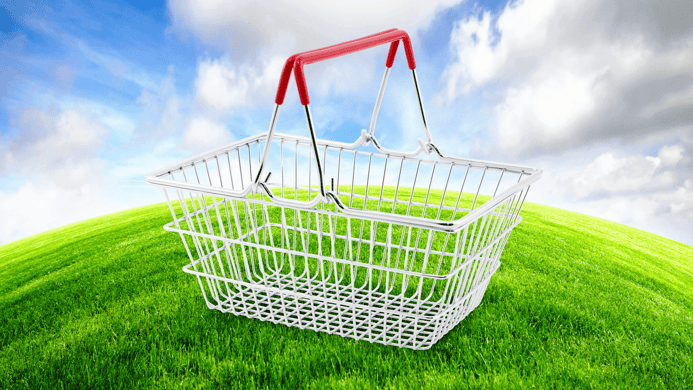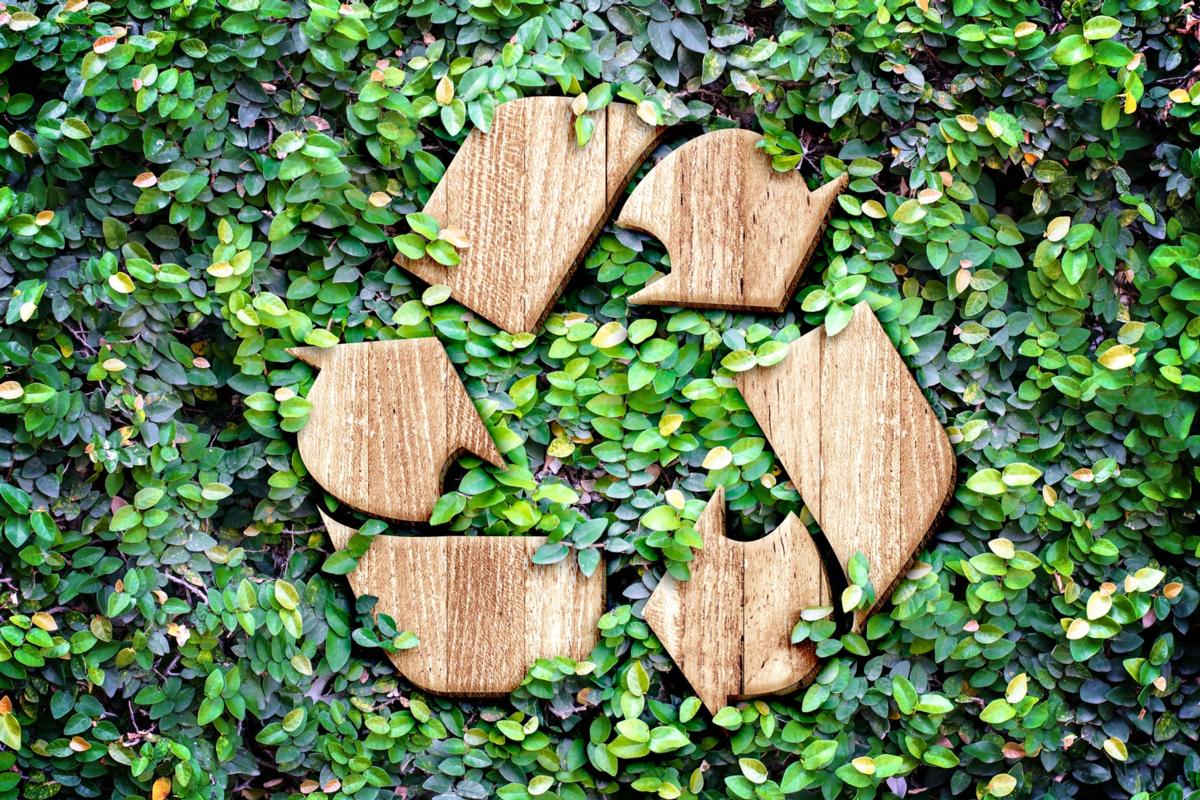
Environmental awareness is changing retail from both the consumer and retailer side. The increasing realisation of our ecological footprint has led consumers to re-evaluate their purchase habits and businesses to re-structure their sustainable efforts. Now, more than ever before, retailers and businesses are being called to make drastic changes in their methods and values to decrease their carbon footprint and promote a more sustainable world. It has become a priority that retailers incorporate initiatives that reflect the increasing consumer environmental efforts.
In light of World Environment Day, celebrated on June 5th, at CPM we have highlighted the importance of investing in sustainability efforts:
Why should retailers and businesses invest in sustainability?
Environmental benefits & cutting costs
Everything from heating and packaging to marketing and values has some effect on the environment. It is important for businesses to be aware of their impact on the environment in order to make a difference. Especially in retail, there are so many opportunities for businesses to incorporate practices that are much more environmentally sustainable. Changing your energy consumption, whether it be a reduction or a more sustainable replacement, can cut your company costs. Businesses sometimes have a preconceived notion that sustainable practices are always more expensive and %20(1).jpg?width=300&name=shutterstock_732317086%20(1)%20(1).jpg) take more effort. However, simple changes such as reducing paper usage, eliminating plastic bags, and turning off computers and lights when they are not being used can reduce costs. In fact, an easy switch from incandescent light bulbs to LEDs can save up to 85% of energy consumption. Cutting down your energy usage is a great way for your business to increase profits while decreasing your carbon footprint.
take more effort. However, simple changes such as reducing paper usage, eliminating plastic bags, and turning off computers and lights when they are not being used can reduce costs. In fact, an easy switch from incandescent light bulbs to LEDs can save up to 85% of energy consumption. Cutting down your energy usage is a great way for your business to increase profits while decreasing your carbon footprint.
Consumer expectations & brand loyalty
Consumers today take into consideration the social responsibility initiatives of retailers and brands when making a purchase decision. They are increasingly likely to buy sustainable products and engage with brands that have strong environmental values. In fact, almost one half of Irish consumers said they would pay more for sustainable products (2019 PwC Irish Retail and Consumer Report). According to the 2018 Nielsen Irish Consumers & Sustainability survey, 91% of respondents believe that retailers should do more to reduce the amount of packaging used on grocery products. In fact, over half of Irish consumers said it is their priority to actively seek products that are environmentally-friendly and have minimal or no plastic packaging (2019 PwC Irish Retail and Consumer Report).
Not only is the packaging a concern for consumers, but sustainable production and environmental activism are also key factors in their purchase decisions. Consumers are looking for products and brands that will aid their own sustainability lifestyle efforts. Therefore, creating, maintaining and promoting environmentally friendly practices within your retail business can build trust and loyalty .jpg?width=202&name=shutterstock_87098651%20(1).jpg) with your customers. Incorporating strong sustainable values in your mission and culture is quite important to consumers. In fact, 87% of consumers said they would have a more positive image of a company that supports social or environmental issues, and 88% said they would be more loyal to a company that supports social or environmental issues. Consumers often look for sustainability efforts that go beyond the products themselves, so make sure your sustainable values are embedded in all aspects of your business.
with your customers. Incorporating strong sustainable values in your mission and culture is quite important to consumers. In fact, 87% of consumers said they would have a more positive image of a company that supports social or environmental issues, and 88% said they would be more loyal to a company that supports social or environmental issues. Consumers often look for sustainability efforts that go beyond the products themselves, so make sure your sustainable values are embedded in all aspects of your business.
What can retailers and business do to be more sustainable?
Simple changes
Going back to the basics of ‘reducing, reusing, recycling’ in your offices, warehouses and stores can introduce a simple change that will make a big difference. You can reduce energy-usage by switching to environmentally friendly light bulbs as well as turning off computers, lights and heating when they are not actually needed. You can also reduce your waste production by recycling as much as possible and using as little paper as you can. Using less paper can reduce your business’s carbon footprint while increasing efficiency.
Plastic packaging: reduce, eliminate or replace
%20(1).jpg?width=293&name=shutterstock_1284514084%20(1)%20(1).jpg) Plastic pollution is one of the main environmental concerns today. With a drastic increase in general consumption and single-use items, the world has produced more plastic in the last 10 years than in the entire previous 100 years (The Balance 2019). Only 9% of plastic gets recycled, leaving eight million tonnes of plastic per year as waste, either in a landfill or the ocean. Consumers are looking for products with less packaging or more environmentally friendly options. According to a Coleman Parkes Research, 88% of consumers want packaging to provide more information about sustainability, and 92% of consumers would choose paper-based over plastic-based packaging.
Plastic pollution is one of the main environmental concerns today. With a drastic increase in general consumption and single-use items, the world has produced more plastic in the last 10 years than in the entire previous 100 years (The Balance 2019). Only 9% of plastic gets recycled, leaving eight million tonnes of plastic per year as waste, either in a landfill or the ocean. Consumers are looking for products with less packaging or more environmentally friendly options. According to a Coleman Parkes Research, 88% of consumers want packaging to provide more information about sustainability, and 92% of consumers would choose paper-based over plastic-based packaging.
Legislation has addressed the concerns around plastic usage. Among the objectives included in the European Union’s 2018 framework, it was announced that all packaging should be recyclable, reusable or compostable by 2030 (Independent 2019). This could represent a drastic change for retail businesses, but looking at possible alternatives to plastic packaging or how to reduce its usage can also have a lasting sustainable impact and a positive response from customers.
Communicate your sustainable efforts externally & internally
It is important to communicate your business’s environmental values and sustainable efforts to consumers in order to increase transparency and trust. Consumers today are looking for brands with a strong and active sustainability mission. These sustainability efforts must be a true reflection of the company values and interests, and not just a marketing tactic to target the sustainability trend that is driven by environmentally conscious consumers. Having an honest focus on reducing the ecological footprint will strengthen the trust between the consumer and brands. Social media and blog posts are great tools to convey sustainable efforts and values to consumers, who are constantly seeking information on ecological initiatives as well as unique efforts to make a real impact. So why not make your environmental marketing bold enough to capture the attention of consumers, while ensuring your efforts are genuine?
 It is also important to keep staff members informed of your company’s sustainability actions. As employees are the best spokespeople of your business, it’s crucial for them to be familiar with your environmental policy. Not only will this create trust within your company, but it will also have a positive impact in employees’ morale.
It is also important to keep staff members informed of your company’s sustainability actions. As employees are the best spokespeople of your business, it’s crucial for them to be familiar with your environmental policy. Not only will this create trust within your company, but it will also have a positive impact in employees’ morale.
At CPM we are committed to minimising our environmental footprint. We believe that sustainability is as much a part of our commitment to continuous innovation as improving our performance and services. We are always looking for ways to reduce our ecological footprint, whether is in the office or in the field. We are proud of our efforts to help promote a more sustainable company in the countries we operate in. If you would like to know more about our sustainability efforts, contact us at info@cpmire.com.
Resources:
https://www.alphr.com/business/1010392/why-retailers-need-to-care-about-sustainability
https://www.nielsen.com/content/dam/nielsenglobal/uk/docs/reports/irish-consumers-and-sustainability-report.pdf
https://www.independent.ie/business/small-business/good-things-come-in-sustainable-packages-38124882.html
https://www.vendhq.com/blog/sustainability-in-retail/
https://www.shopify.co.uk/retail/sustainability-in-retail-what-it-looks-like-and-why-it-matters
https://www.independent.ie/business/small-business/good-things-come-in-sustainable-packages-38124882.html
https://www.pwc.ie/publications/2019/irish-retail-consumer-report-investing-in-experience.pdf


 3 minute read
3 minute read


